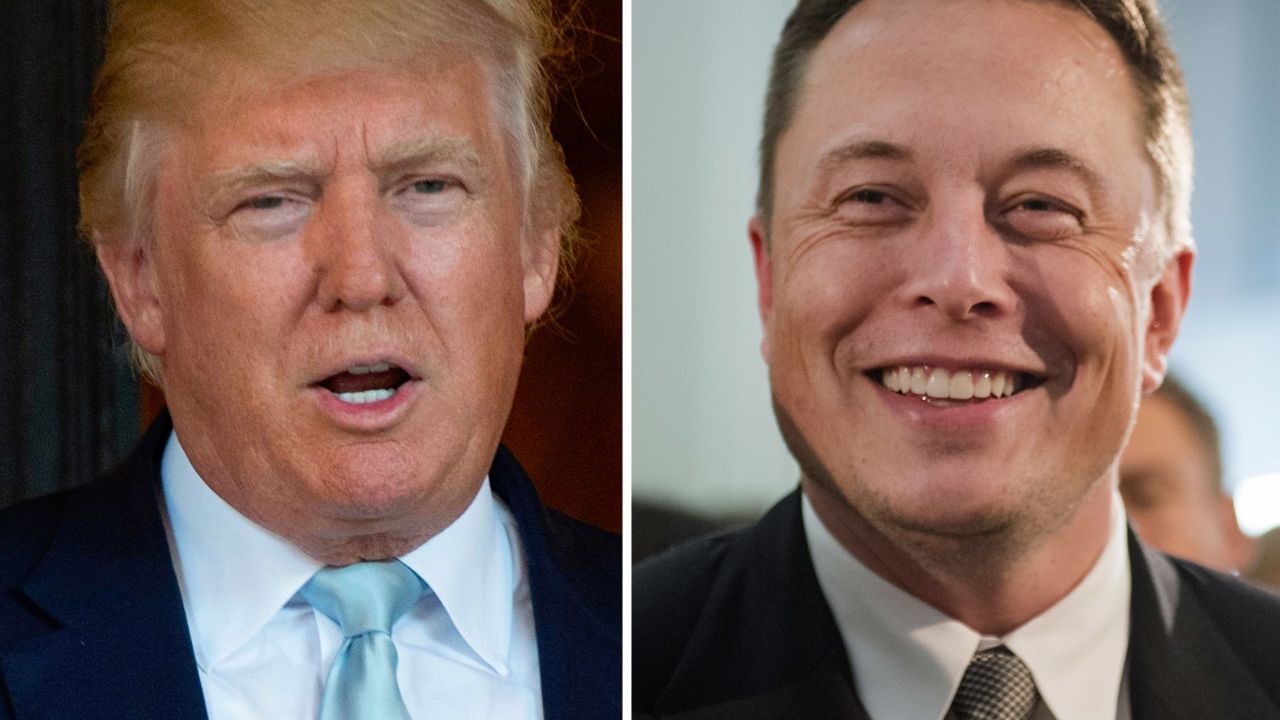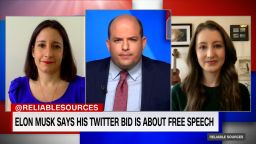Editor’s Note: Jill Filipovic is a journalist based in New York and author of the book “OK Boomer, Let’s Talk: How My Generation Got Left Behind.” Follow her on Twitter. The opinions expressed in this commentary are solely her own. View more opinion on CNN.
Elon Musk just threw a wrench in the next US presidential election – to the benefit of Donald Trump.
With the man thought to be the world’s richest buying Twitter, the platform is likely in for some big shifts. Among them: changes to the terms of service that would allow currently banned users to return. That could include the former President.
Trump was permanently suspended after the January 6 riots; the company said it worried his tweets increased “the risk of further incitement of violence.” But Musk is a self-styled free speech absolutist, who has criticized many of Twitter’s efforts to reign in trolling and abuse on the platform. “If in doubt, let the speech exist,” Musk told the audience at a recent TED conference. “If it’s a gray area, I would say, let the tweet exist.”

Already, there is wide speculation that a Musk-owned social media platform will welcome Trump back. For his part, Trump says he wouldn’t return, but it’s hard to imagine that a man with such itchy Twitter fingers would be able to stay away for long.
Trump’s return to Twitter, some commentators argue, would be a gift to Democrats. “Trump being back on Twitter is terrible for the country but really good news for Democrats,” said Sen. Chris Murphy of Connecticut. Trump’s tweets would remind moderate voters of just how unhinged the former President is, and emphasize that, while Democrats may be boring, they aren’t deranged or dangerous. And that, the argument goes, translates into Democratic wins in the midterms. If Trump is the Republican candidate in 2024, Twitter increases the probability that he loses.
I’m not so sure.
This “sunlight is the best disinfectant” theory was, after all, the dominant argument in 2016. When Trump was selected as the Republican Party’s presidential candidate, many liberals were worried about what that said about conservative voters. They were largely relieved, however, that GOP primary voters had clearly picked the worst possible contender.
After all, Americans would never elevate a man who could barely string a sentence together, had no prior political experience, regularly went on bigoted rants, mocked a disabled reporter, was clear in his authoritarian ambitions and bragged about grabbing women’s genitals, right?
What so many of us didn’t anticipate was that Trump’s antics meant he owned the news cycle. Instead of discrediting him, that normalized him. He reveled in it, and right-wing media figures turned themselves inside out to insist that his words and actions were normal and acceptable – little more than locker room talk.
Instead of spurring widespread disgust, Trump’s unapologetic bigotry sent the left reeling and created a culture of permissiveness on the right – the filters of propriety and politeness came down, the fa?ade of decency was roughed off. It was fun, many Trump supporters found, to be crass bullies in public. The more liberals and media outlets were shocked and offended, the more fun it was.
Moderate Republicans who initially may have been stunned by Trump’s offensive behavior eventually became acclimated to him through a kind of exposure therapy as he became their party’s new normal. When there’s such a volume of offensive things, it perversely becomes easier to justify or ignore them; they’re no longer shocking. It didn’t hurt that Trump was running against Hillary Clinton, who had been a right-wing boogeyman for two decades.
Much of this was made possible by Twitter. It’s not that the median voter was reading Trump’s tweets; the vast majority of Americans aren’t on the platform. It’s that Twitter is a salon of politicians and journalists. Every time Trump tweeted, he had the attention of every political journalist in the country. For him, that was an unmitigated benefit.
Trump’s long Twitter time-out has quite effectively pushed him out of the media spotlight, and his efforts to create a competitor social media platform have fallen flat. Yes, Trump lost to Joe Biden in 2020, after four years of chaos and ineptitude. He also ran for reelection in a different media landscape, one appropriately chastened by the debacles of 2016: While the Clinton-Trump race was characterized by breathless coverage of Clinton’s private email server, in 2020, the country’s major media outlets were more careful. And Democrats, no longer confident that an unserious huckster was destined to lose, were not at all complacent.
In 2024, though, Trump will be running after four years of boring competence (and frankly, after four years in which Democratic incumbent Joe Biden likely will have failed to implement a promised agenda). With some distance, plus a rough economy and rising consumer prices, the Trump threat might not feel so acute, and a steady Democratic hand might not look so appealing. Already, progressives and liberal commentators and politicians are falling back on the same assumptions that handed Trump a win in 2016: that his outlandish tweets hurt him.
Trump’s outlandish tweets do indeed hurt him with liberal Democrats. But that’s not who he’s trying to motivate and win over. His outlandish tweets garner the kind of attention that makes normal people follow politics, as if elections were sporting events, or reality TV shows. For people who take politics seriously, this kind of inanity is hard to comprehend. For Trump, it’s the playbook.
And it might just be his path to victory.


